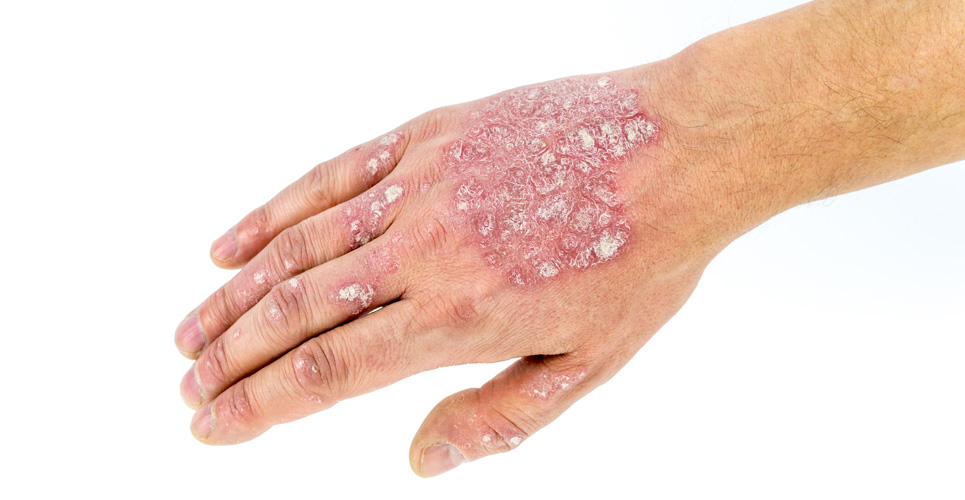teaser
Stelara (ustekinumab) has today been approved by the National Institute for Health and Clinical Excellence (NICE) as a treatment option for adults with moderate to severe plaque psoriasis, a notoriously difficult-to-treat skin condition for which many patients report feeling dissatisfied and frustrated with existing treatment options.
Stelara, the first in a new class of biologics for the treatment of psoriasis, works by targeting interleukin-12 (IL-12) and IL-23. It provides visible and significant improvements in psoriasis severity, and has the added advantage of a convenient dosing regimen for patients – just five injections per year in comparison to a possible 104 injections with etanercept, a widely prescribed biologic therapy.
Psoriasis, a chronic, non-contagious autoimmune disease resulting in the overproduction of skin cells, affects around 1.5 million people in the UK; up to 20-30% of whom suffer from the severe form of the disease. Psoriasis can have both a significant physical and psychological impact on patients. Low self-confidence, depression, anxiety and sexual roblems are all common, and the impact on quality of life in people with psoriasis is comparable to other chronic illnesses such as heart disease, hypertension, diabetes and cancer. In addition, researchers have shown that patients with psoriasis have an increased risk of developing other serious conditions such as cardiovascular disease, diabetes and obesity.
“Psoriasis is an incurable chronic skin condition and many patients hate the way they look and are clinically depressed,” said Dr Tony Downs, Consultant Dermatologist, Royal Devon and Exeter NHS Foundation Trust.
“Stelara offers both physicians and patients an alternative treatment choice, which is important because psoriasis is not a straightforward disease. Its severity can wax and wane, it can become resistant to any treatment and patients can develop side effects to many of the current alternative treatment options. In clinical practice I have found Stelara to be effective in patients that have failed on other systemic therapies.”
In clinical studies, treatment with Stelara demonstrated a significant, visible improvement in patient’s psoriasis with convenient 12 weekly maintenance dosing. This has the potential to give patients with psoriasis greater freedom to live their lives with a significantly reduced burden of disease and without the inconvenience of frequent injections.
“Two-thirds of patients taking Stelara in placebo-controlled trials saw a significant, visible improvement in their psoriasis in as little as 12 weeks,” said Professor Christopher Griffiths, Professor of Dermatology at the University of Manchester. “This is reflective of what I have seen in clinical practice, with patients experiencing considerable improvements in skin clearance with the added benefit of a convenient dosing regimen.”
Janssen-Cilag has worked together with NICE and the Department of Health to agree a specific UK access scheme under which people who weigh more than 100 kg and who are prescribed the 90 mg dose, as per the SPC, will receive both vials (2 x 45 mg) at the cost of a single vial.
NICE has recommended Stelara (ustekinumab) as treatment option for adults with plaque psoriasis for whom biologic therapy is being considered and when the following criteria are both met:
- The disease is severe, as defined by a total Psoriasis Area Severity Index (PASI) score of 10 or more and a Dermatology Life Quality Index (DQLI) score of more than 10.
- The psoriasis has not responded to standard systemic therapies, including ciclosporin, methotrexate and PUVA (psoralen and long-wave ultra-violet radiation), or the person is intolerant of or has a contraindication to these treatments.

